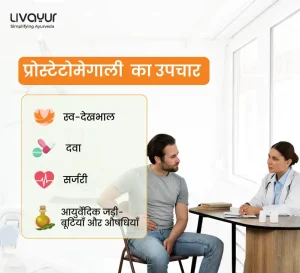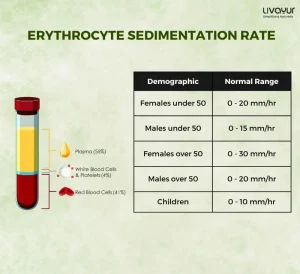This article is reviewed by an expert

Do you know what myocarditis is? Also known as the myocardium, myocarditis is a condition characterised by inflammation in the heart muscle (1).
If not treated on time, myocarditis can lead to the weakening of the heart muscle, impairing its ability to efficiently pump blood throughout the body (1).
Let’s know more about myocarditis and treat it on time before facing any adverse health problems.
Myocarditis Symptoms (2)
In the early stage of myocarditis, symptoms may be mild or even absent. However, as the condition progresses, several common symptoms may arise, including chest pain, fatigue, and the presence of rapid or abnormal heart rhythms, known as arrhythmias.
Additionally, signs of infection may manifest, such as diarrhoea, headache, fever, muscle aches, sore throat, and shortness of breath.
Swelling in the legs can also occur as a symptom of myocarditis.
Myocarditis Types (1)
Acute Myocarditis
Acute myocarditis refers to a relatively recent or rapid onset of the condition, often caused by a viral infection. Symptoms of acute myocarditis can develop suddenly and may resolve quickly as well. It is important to seek medical attention promptly if you suspect acute myocarditis.
Chronic Myocarditis
Chronic myocarditis occurs when the disease takes a long time to treat or when symptoms reappear after a period of improvement. This type of myocarditis can be associated with more general inflammatory conditions, such as autoimmune disorders, where the immune system mistakenly attacks healthy cells and tissues in the body.
Lymphocytic Myocarditis
Lymphocytic myocarditis is a rare form of myocarditis that can result in hospitalisation for acute care. It occurs when white blood cells, specifically lymphocytes, enter the heart muscle and cause inflammation. Lymphocytic myocarditis can occur following a viral infection.
Myocarditis Causes (3)
Myocarditis can be attributed to various causes, with infections being the most common trigger. Infections caused by viruses, including those responsible for the common cold, influenza, and even COVID-19, can lead to inflammation in the heart muscle. Additionally, bacterial, fungal, or parasitic infections can also result in myocarditis.
Furthermore, autoimmune diseases like lupus and sarcoidosis can also cause myocarditis as the immune system has the potential to attack any organ, including the heart, leading to inflammation.
It’s important to note that certain drugs or exposure to environmental and toxic substances can also contribute to the development of myocarditis.
Myocarditis Diagnosis (1)
Diagnosing myocarditis can be challenging as its symptoms and signs are not specific. When evaluating a potential case of myocarditis, your doctor will conduct a comprehensive assessment of your medical history and symptoms. They may also recommend certain tests like blood tests, chest X-rays, electrocardiograms and echocardiograms.
In some cases, additional tests such as cardiac MRI or biopsy may also be necessary to confirm the diagnosis of myocarditis.
Myocarditis Treatment (2)

The treatment of myocarditis aims to manage symptoms, address underlying causes if identified, and support the heart’s function. Although there is no curative treatment for myocarditis, various medications and interventions may be prescribed based on the specific cardiac symptoms, type, and severity of myocarditis. Let’s explore some of the common treatment approaches here:
Angiotensin-Converting Enzyme (ACE) Inhibitors / Angiotensin Receptor Blockers (ARBs): These medications help lower blood pressure and assist in the remodelling of the heart muscle after myocarditis.
Beta Blockers: Beta blockers are prescribed to improve arrhythmias and aid in the remodelling of the heart muscle.
Diuretics: Diuretics help reduce fluid congestion in the body, which can occur when the heart muscle weakens.
Corticosteroids: Corticosteroids are reserved for specific causes of myocarditis and work by reducing inflammation in the body.
In severe cases where heart rhythm disorders occur, a pacemaker or implantable cardioverter defibrillator (ICD) may also be implanted.
If the heart function does not improve and severe heart failure persists, the patient may even be evaluated for a heart transplant.
Additionally, lifestyle changes may be recommended, such as adopting a low-salt diet and adhering to fluid restrictions.
Please remember that the treatment approach may vary depending on individual factors, and it is crucial to consult with a healthcare professional for personalised guidance.
Natural Ayurvedic Myocarditis Treatment
As has been pointed out by some experts, Ayurveda’s concept of Hridroga or cardiovascular disease may be limited, but it is no less valuable. While modern science has broadened our understanding of heart function and heart disease, Ayurvedic knowledge has wide-ranging therapeutic applications in different forms of heart disease that are only being recognized today and myocarditis is no exception 5.
Research shows that heart failure, a complication associated with myocarditis, can be effectively treated with Ayurvedic therapy that involves the administration of Panchakarma procedures including Snehana (massage), Swedana (fomentation therapy) and Basti (type of enema), as well as Hrudayadhara (oil dripping therapy). In fact, the study concerned found this combination therapy to be effective enough to be described as heart failure reversal therapy (HFRT) 6.
Ayurvedic medicines also offer a safe natural avenue of treatment for viral myocarditis, with a study confirming benefits of herbs such as Katira or astragalus membranaceus, as well as others such as Danshen or Salviae miltiorrhizae, Arjuna, Ashwagandha, and Kushen or Sophorae flavescentis. The researchers observed visible improvement in myocarditis symptoms, as well as improvement in electrocardiogram results, CPK levels, and cardiac function 7.
The Takeaway
Myocarditis is a condition characterised by inflammation in the heart muscle. It can have serious consequences if not treated promptly. Therefore, if you have any symptoms of myocarditis, consult with a healthcare professional immediately for personalised guidance and treatment options.
FAQs
- What is the typical recovery time for myocarditis?
Most cases of myocarditis are self-resolving, meaning they improve on their own. However, for some people, recovery may take several months after receiving appropriate treatment (1).
- How common is myocarditis?
Researchers estimate that there are approximately 1.5 million cases of myocarditis worldwide each year. This translates to approximately 10 to 20 individuals affected out of every 100,000 people (4).
- What are the potential complications of myocarditis?
Myocarditis can lead to various complications in some individuals, including cardiomyopathy (heart muscle disease), lung issues, arrhythmias (abnormal heart rhythms), fainting, heart failure, cardiogenic shock, and sudden cardiac death (4).
- Does myocarditis go away on its own?
In mild cases, myocarditis may resolve spontaneously without specific treatment. However, if symptoms persist or worsen, medical intervention, including the use of medications, may be necessary. It is important to consult with a healthcare provider for proper evaluation and guidance (4).
- How can you reduce the risk of myocarditis?
While it is challenging to avoid many of the causes of myocarditis, you can take certain steps to reduce your risk:
- Practise good hand hygiene by washing your hands regularly.
- Stay up to date on vaccinations, such as the flu vaccine.
- Limit alcohol intake, avoid prohibited drugs and maintain a healthy lifestyle (4).
- What extra caution should you take if you have myocarditis?
If you have experienced myocarditis, it is essential to remain vigilant and report any recurring symptoms to your healthcare provider. To optimise your chances of staying healthy:
- Attend your follow-up appointments as scheduled.
- Continue taking prescribed medications.
- Refrain from exercising until authorised by your healthcare provider.
- Maintain a low-salt diet.
- Quit using tobacco products.
- Avoid alcohol consumption (2).
Disclaimer: The information provided here is for general information and not meant to substitute any medical advice. Please consult your doctor for appropriate medical consultation.
References
- https://www.hopkinsmedicine.org/health/conditions-and-diseases/myocarditis
- https://medlineplus.gov/ency/article/000149.htm
- https://www.ncbi.nlm.nih.gov/pmc/articles/PMC5814110/
- https://my.clevelandclinic.org/health/diseases/22129-myocarditis
- https://jaims.in/jaims/article/view/1842/2182
- https://www.ncbi.nlm.nih.gov/pmc/articles/PMC6314236/
- https://www.ncbi.nlm.nih.gov/pmc/articles/PMC3155696/






















